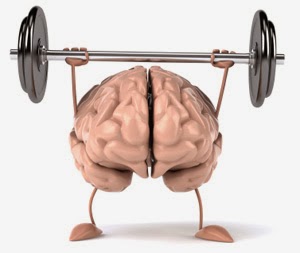Barbara Christensen VlogCast Vacation Post
So while I'm enjoying the holiday with family I wanted to share more "genetic" intriging information for all of you to enjoy.Vegan Creatine and Brain Shrinkage Diseases
I found an amazing Vegan source of creatine! I'm so excited. And remember that creatine isn't just important for those trying to build muscles. Dr. Terry Wahls, who've I'm enjoying listening to on TED today, believes that creatine and carnitine are 2 extremely important nutrients for healing the mitochondria. The data suggest that creatine may enhance survival signaling via activation of the Ras/NF-kappaB system. MS, Huntington’s, Parkinson’s and Alzheimer’s disease, MS... all have the similar brain shrinkage which Dr. Wahls believes is linked to poorly functioning mitochondria.Dr. Wahls said she first started to see changes in her own medical condition after adding omega-3 fats, creatine and Coenzyme Q10 into her daily routine. She then changed her diet to include the building blocks of nutrition which for her she determined were roots, seeds, nuts, oily fish, grass-fed meats, organ meats and natural iodine from sea weeds.
I love seaweed and those sea vegetables I often get from the Emerald Sea supplement because it has been tested heavy metal and toxin free which is so important. Seaweed is great for iodine because of the use in our myelin repair. Myelin is a fatty substance that forms a sheath for nerve fibers According to an amazing naturopathic physician, Dr. Linda Page, all neurological disorders must be comprehensively addressed, and so I agree because when you add into the issues things like the severe copper deficiency in MS, and we've talked recently about copper and dopamine, etc, then you can't just say you have a genetic defect and leave it at that because it comes back to the nutrition. Genetics and nutrition, and nutrition and genetics. I still believe that our answers have to start with the questions there. In MS, T cells from the body's immune system attack and destroy the myelin sheath and leave the nerve cell fibers unprotected. The reason the iodine is important to the myelin sheath has to do with it's role in our synthesis of the thyroid hormones. Thyroid hormones help your cells activate genes which triggers the production of specific proteins. One of those proteins is the myelin basic protein (MBP) which is an essential component of the myelin sheath. Something interesting for those with Hashimoto's to consider as well.
Now Dr. Wahl also ate 9 cups of non-starchy vegetables and berries each day. For her 3 cups of that were greens, and 3 cups were sulphur-containing vegetables - kale, collard greens, broccoli, cabbage, Brussels sprouts, cauliflower, garlic, onions, chives, leeks, mushrooms, asparagus, and colorful vegetables. She believed anything inflammatory and processed must be removed – so no sugar, high fructose corn syrup, aspartame, allergens, dairy (including raw dairy), grains, or legumes, including soy beans. Sound familiar? Dairy, grains and legumes, especially, are implicated in auto-immune reactions which is what brings many of us to both veganism and paleolithic diets.
Yet Dr. Russell Blaylock, a neurologist, has suggested that while "no one has adequately tested a specific diet and mix of supplements as a treatment for Huntington’s, based on the best scientific evidence it makes sense to follow a mostly vegetarian diet, avoid fluoride and mercury-containing seafoods, foods containing omega-6 (vegetable oils), and high-sugar foods and drinks."
I personally have to wonder, was it the bioactive iron and amino acids that she was getting from the grass-fed and organ meats just something she was greatly lacking due to her genetic makeup and perhaps digestive issues?
I would be personally worried about offering up too much meat to anyone with Huntington's not knowing enough about the proteins, but of course I am not a doctor or dietitian. But just like what I've talked about with MTHFR defects and our genetics being a key to what we should be eating and supplementing with, those with Huntington's have the HTT genetic defect. John Hopkins has been doing some amino acid based clinical studies that seem to point in this direction. Interesting read over here.
 Now also going into paleo she would have then removed the gluten (specifically wheat) proteins. As I've read about the HD patient in S. California who was a member of a local CrossFit Gym, and who had been diagnosed with HD by a group of University neurologists employing MRI technology to detect the characteristic brain lesions. After approximately 8 months following adoption of a Paleo Diet (Gliadin free), she experienced a dramatic reduction in disease symptoms and subsequent MRI evaluation indicated a reduction in lesion volume. My uncle has celiac and so he is living Gliadin free and is quite healthy even though he is almost 90 years old, which is really quite an interesting bit I'd love to study more one day.
Now also going into paleo she would have then removed the gluten (specifically wheat) proteins. As I've read about the HD patient in S. California who was a member of a local CrossFit Gym, and who had been diagnosed with HD by a group of University neurologists employing MRI technology to detect the characteristic brain lesions. After approximately 8 months following adoption of a Paleo Diet (Gliadin free), she experienced a dramatic reduction in disease symptoms and subsequent MRI evaluation indicated a reduction in lesion volume. My uncle has celiac and so he is living Gliadin free and is quite healthy even though he is almost 90 years old, which is really quite an interesting bit I'd love to study more one day.Dr. Wahl also recommended for diet to eat organic, free-range, antibiotic-free eggs (if tolerated), because they contain choline – which together with inositol – is critical for myelin sheath repair. I've discussed myelin sheath repair on my blog a long time ago in connection with curcumin extract. Turmeric is a potent anti-oxidant and anti-inflammatory as you know. So when it comes to these sorts of nuero diseases, curcumin has been seen as a way to free up the traffic in your nerves and repair that myelin sheath damage. In fact they have found MS to be very rare in India where Turmeric is a part of the daily nutrition.
Back to choline, however, your collard greens, swiss chard and cauliflower, sesame and those beloved flax seeds all contain lessor levels of choline and if you are eating the 3 cups were sulphur-containing vegetables daily you would imagine you are getting enough choline. Also grapefruits, oranges, mandarin oranges, cantaloupe, rutabaga, blackberries, artichokes all have great amounts of inositol. So I don't think that it really comes down to the meat and that is why we are seeing vegan paleo as being so healthy. Just making sure you are getting those highly bioavaiable nutrients that you need daily is what is important, not the specific food product.
I want to emphasize that I am not a doctor, and I can’t provide personal medical advice. Any decisions about treatment of a disease or symptoms from an illness should be pursued in consultation with your primary physician.Consider this some useful items to discuss at your next appointment if you are looking to dramatically change your diet.
































0 comments:
Post a Comment